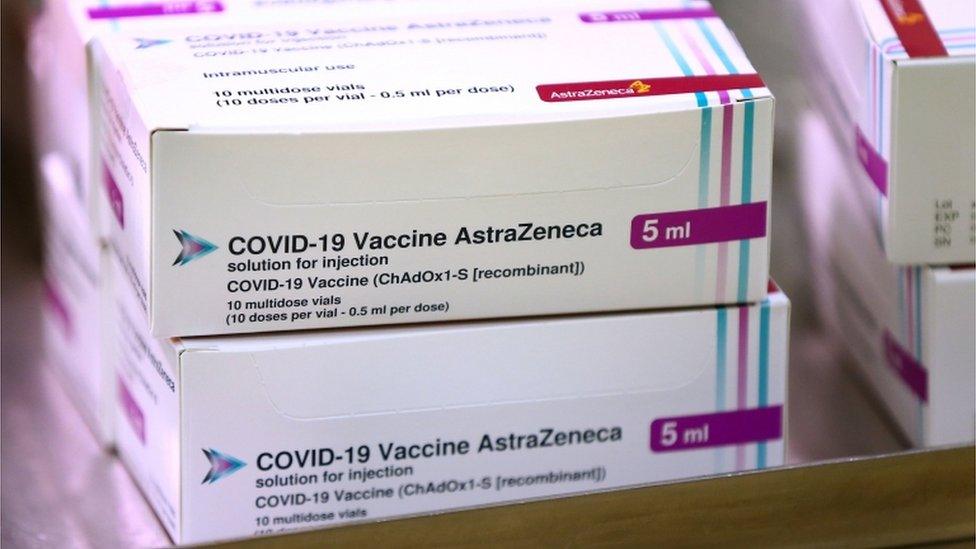Oxford-AstraZeneca vaccine: Why has the trial in children been paused?
- Published
- comments

A trial of the Oxford-AstraZeneca coronavirus vaccine in children has been temporarily paused while more research is carried out.
Around 300 volunteers are taking part with the aim of finding out how well the jab works in young people.
Professor Andrew Pollard, from the University of Oxford which developed the vaccine, told the 大象传媒 there were no safety concerns with the trial itself.
The Medicine and Healthcare Products Regulatory Agency (MHRA) made an investigation into concerns that the vaccine could be linked to rare bloody clots in a tiny number of adults.
They've now recommended that people aged under 30 should be offered an alternative Covid jab to the AstraZeneca vaccine, and the government's vaccine advisory group, the JCVI, have agreed.
So, why has the trial in children been paused and what happens now? Here's everything you need to know.
What is the trial and what does 'pausing' it mean?
The Oxford-AstraZeneca trial began at the end of February, because scientists wanted to see how well the vaccine works in children aged between six and 17 years old.
It is one of the jabs already approved as safe for use in adults in the UK. There are currently no vaccinations approved for children.
Vaccines: What are they and how can they help fight Covid-19?
Why has the trial in children been paused?
The Oxford-AstraZeneca vaccine was rolled out across the UK from 4 January. There has been a small number of cases in the UK of rare blood clots in adults who have received it. Data from the MHRA shows there have been 30 recorded out of more than 18 million people who have had it.
Experts have looked into whether or not the clots and vaccine are linked, and concluded that healthy adults under 30 should get a different vaccine to the Oxford-AstraZeneca jab.
The MHRA chief Dr June Raine said that blood clots are "extremely rare".
None of the 300 children involved in the trial have had a blood clot, and Professor of Child Health Calum Semple said for adults to have one was "incredibly rare".
What's the advice for adults about the Oxford-AstraZeneca vaccine?
Dr June Raine said the side-effects of this vaccine were "extremely rare" - and more work was going to identify if the vaccine was definitely causing the clots.
"The balance of benefits and known risks of the vaccine is still very favourable for the vast number of people," she said.
But she said for younger age groups it was more "finely balanced".
The MHRA says the benefits of the jab continue to outweigh any risk.
The JCVI said people who have had a first Oxford-AstraZeneca jab should still be offered the second dose.
England's deputy chief medical officer Professor Jonathan Van-Tam said the vaccination programme has been "a most enormous success" but needs a "course correction".
Professor Van-Tam said: "I hope you've seen real evidence today of authentic experts looking after your interests doing the very best they can.
It is a course correction but it's full speed ahead with the UK vaccine programme so that we can get life back to normal."
- Published7 April 2021
- Published4 January 2021
- Published19 November 2020
- Published11 November 2020
